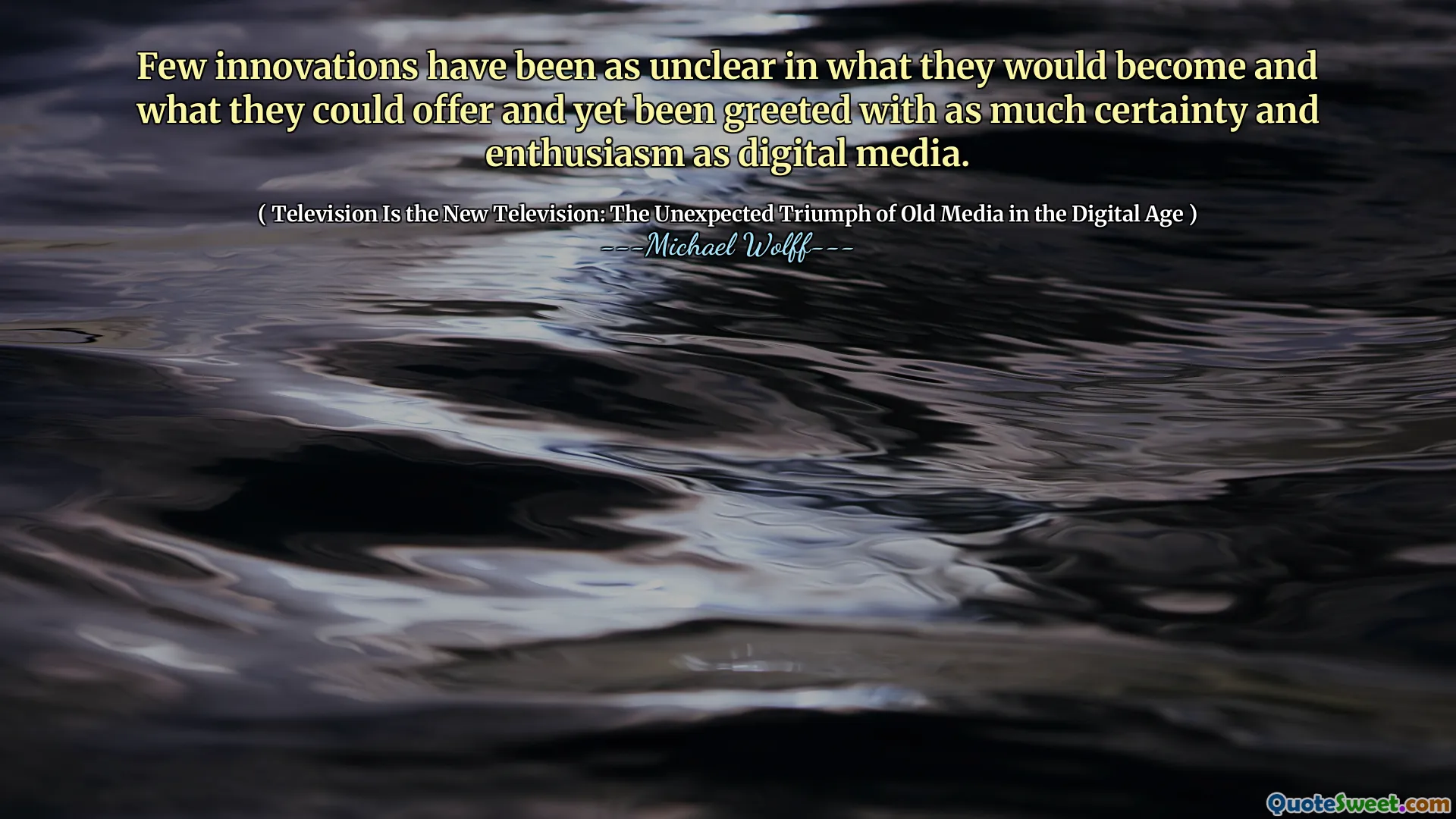
Few innovations have been as unclear in what they would become and what they could offer and yet been greeted with as much certainty and enthusiasm as digital media.
Michael Wolff's book, "Television Is the New Television," explores the evolution of media in the digital age and highlights the paradox of digital media innovations. Despite their ambiguous future and potential, these innovations have been met with significant enthusiasm and optimism. This reflects a common tendency in the tech world to embrace new developments, often without full understanding of their implications.
Wolff argues that while digital media has transformed how content is consumed, traditional media forms, particularly television, continue to hold enduring value. The palpable excitement surrounding digital possibilities starkly contrasts with the uncertain outcomes, suggesting an inherent belief in the power of storytelling and content, regardless of the medium used to deliver it.






